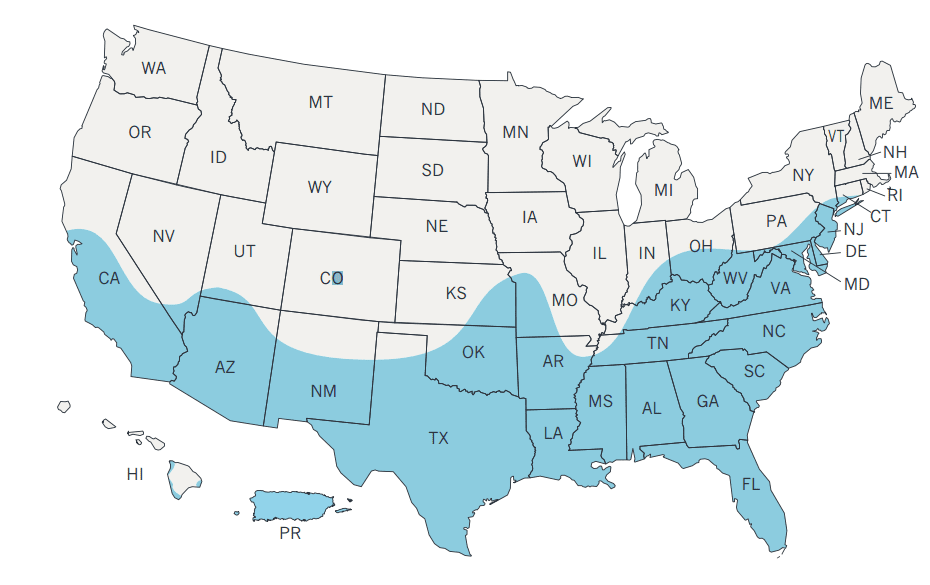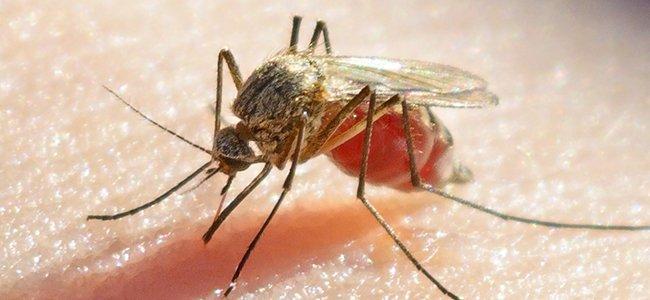
American Pest Acquires Capitol Pest
10/01/2021
Fulton, MD, September 30, 2021—American Pest, the leading provider in modern, preventive pest management throughout Maryland, Washington D.C....
READ MORE >
 |
|
Map above shows estimated range of Aedes Aegypti (Courtesy of CDC) |
Yesterday the Centers for Disease Control (CDC) held a press conference to disseminate findings that the Zika virus is ‘scarier than we initially thought' and that the mosquito responsible for transmission to humans—the Aedes aegypti—is found in a significantly larger swath of states than previously indicated. The potential exists for people residing within American Pest's service territory (Washington D.C., Maryland, and Northern Virginia) to come into contact with Aedes mosquitoes this summer—without traveling too far from home.
President Obama reached out to Congress in February asking for $1.9 billion in funds to combat the Zika virus and to prepare all facets of government—down to local jurisdictions—with equipment, labs, education, vaccination research, and designated officials to help prepare for a possible virus outbreak.
Congress stood silently on approving any funds towards the Zika virus, due to the many other viral outbreaks in the past not becoming the public threat as initially predicted. Zika seems like another “cry wolf” virus and many officials may not feel the need to react. As concerns in our nation’s capital and the Centers for Disease Control (CDC) grew, the White House hastily used $600 million left over from the Ebola scare, to initiate action for the Zika Virus.
Is this a serious matter of public health? Is this a threat that needs immediate action? Scientists discovered this week that the Zika virus prefers to attack a human’s brain cells, and can cause a host of other ailments including inflammation of the brain and spinal cord. It can affect anyone of any age—not just pregnant women and their unborn children. Don’t forget this virus can also be sexually transmitted, and four out of five people show no obvious symptoms.
There is also the factor that this virus can affect underprivileged communities more heavily than others. Uncollected trash and higher population density provide more breeding zones for mosquitoes and, ultimately, more victims. It is well known in the pest management industry that old tires are one of the mosquitoes’ favorite habitats.
As Puerto Rico reached 436 confirmed cases of Zika virus and 84 confirmed cases in Florida, senator Marco Rubio recently made a public statement indicating that he supports President Obama’s $1.9 billion request to fight the Zika virus. To date, Florida has been impacted by Zika virus more than any other state, with a total of 346 cases reported nationwide. Florida single-handedly makes up nearly 25% of the national Zika virus total.
Some states are still scrambling towards creating solutions towards this growing threat, while others seem content to do absolutely nothing—despite growing concerns from some of the top researchers in the country. As vector-borne illnesses remain a top concern in the mid-Atlantic region, keeping the public updated on Zika virus will remain a top priority as well.
For more information on vector-borne illness prevention or mosquito and tick control, please contact us.

10/01/2021
Fulton, MD, September 30, 2021—American Pest, the leading provider in modern, preventive pest management throughout Maryland, Washington D.C....
READ MORE >

10/01/2021
October is Breast Cancer Awareness Month, the perfect time to raise awareness about this disease. Did you know breast cancer is the ...
READ MORE >

09/03/2021
Healthcare facilities, such as hospitals, nursing homes, rehabilitation centers, and emergent care centers must maintain a strict level of sani...
READ MORE >

08/13/2021
The mosquito! You may not think much of them at first, but these blood-feeding insects may be the most dangerous creatures on North American lawns....
READ MORE >

Protect your home and family from nuisance and potentially damaging pests with a Preferred Care home pest control plan. Starting at $49/month

Don't let the bed bugs bite a second longer. Contact American Pest for the most comprehensive bed bug control in the industry. Learn More

Our certified rodent control pros will put an end to your frustration by getting rid of rats and mice inside your home. Learn More

Say goodbye to wood-destroying termites in your home when you contact American Pest for expert termite control. Learn More

Trust American Pest to deliver professional backyard tick control services that are guaranteed to get results. Learn More

Don't spend the warm-weather season indoors, find out how American Pest's professional treatments get rid of mosquitoes. Learn More
Fill out the form and recieve feedback in less than 5 minutes. For immediate service please call.